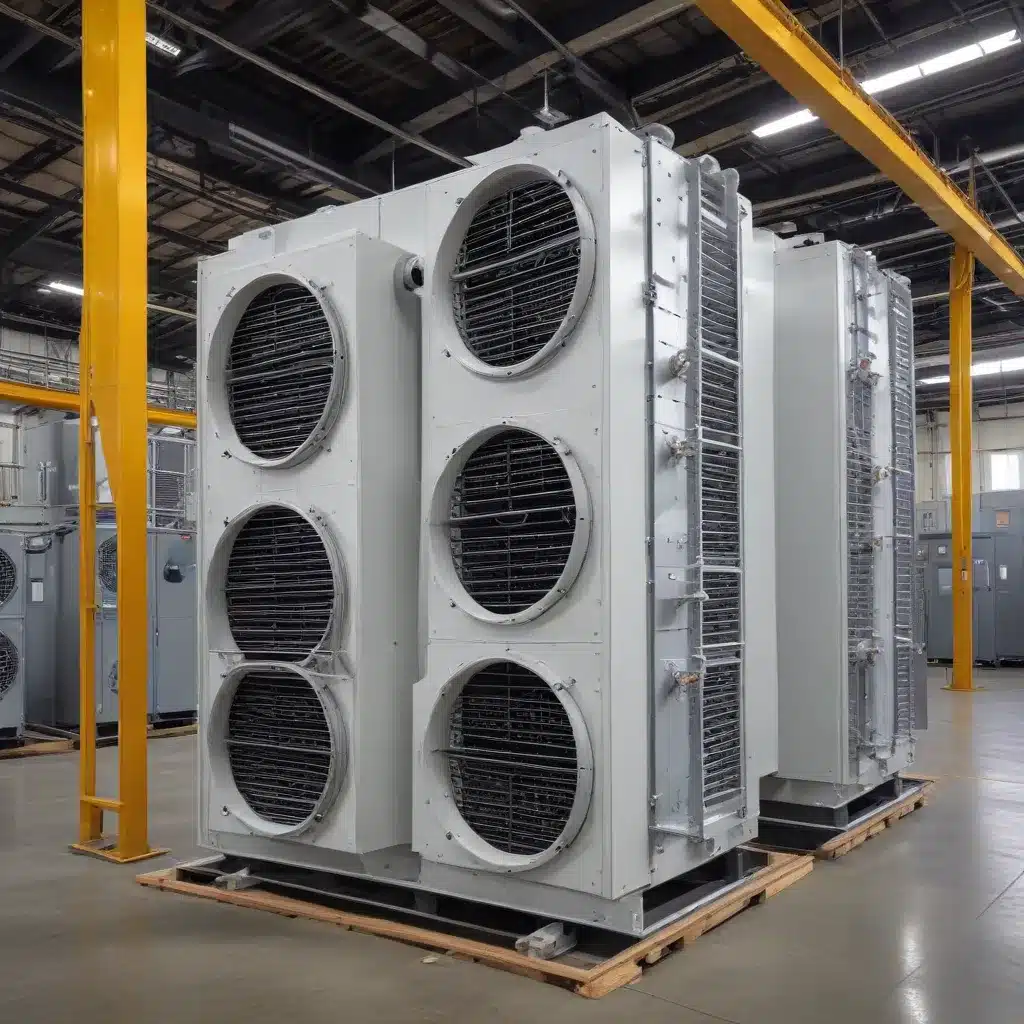
Unlocking the Future of Thermal Management: Transformative Advancements in Air-Cooled Heat Exchangers
In the rapidly evolving landscape of industrial operations, the need for efficient, reliable, and environmentally sustainable cooling solutions has never been more critical. As the demand for energy-intensive processes and equipment continues to surge, air-cooled heat exchangers have emerged as the linchpin in revolutionizing industrial cooling. These innovative technologies are paving the way for a new era of thermal management, where energy efficiency, resilience, and environmental responsibility are the driving forces.
Pushing the Boundaries of Thermal Efficiency
At the heart of this revolution are the groundbreaking advancements in air-cooled heat exchanger design and engineering. Leveraging the principles of thermodynamics and fluid dynamics, these cutting-edge systems are engineered to maximize heat transfer while minimizing energy consumption.
One such innovation is the incorporation of advanced fin geometries, which optimize air flow and heat dissipation. By strategically shaping the fins, engineers can create intricate patterns that enhance turbulence and increase the surface area for heat exchange, resulting in significantly improved thermal efficiency. This, in turn, reduces the energy required to operate the cooling systems, translating to substantial cost savings and a smaller environmental footprint.
Alongside fin design, the selection of high-performance materials has also been a game-changer. The use of lightweight yet durable materials, such as aluminum and copper, has enabled the construction of heat exchangers that are both robust and thermally efficient. These materials not only offer superior heat transfer properties but also contribute to the overall system’s durability and longevity.
Achieving Next-Level Reliability and Resilience
In today’s fast-paced industrial landscape, where downtime can be crippling, the reliability and resilience of cooling systems have become paramount. Air-cooled heat exchangers have risen to this challenge, incorporating innovative features that enhance their operational integrity and longevity.
Advancements in modular design have revolutionized the way air-cooled heat exchangers are deployed and maintained. By creating modular, plug-and-play components, these systems can be easily scaled, reconfigured, or serviced, minimizing disruptions to ongoing operations. This modularity also allows for seamless integration with other cooling technologies, enabling hybrid solutions that combine the strengths of various approaches.
The integration of advanced monitoring and control systems has further bolstered the reliability of air-cooled heat exchangers. Sophisticated sensor networks and data analytics algorithms now enable real-time monitoring of critical parameters, such as temperature, pressure, and flow rates. By continuously optimizing the system’s performance, these intelligent control systems ensure that the heat exchangers operate at peak efficiency, even under varying load conditions.
Championing Environmental Sustainability
As the world grapples with the urgent need to address climate change, the air-cooled heat exchanger industry has stepped up to the challenge, embracing environmentally sustainable practices and technologies.
One significant development is the shift towards refrigerants with lower global warming potential (GWP). By transitioning to eco-friendly alternatives, such as hydrofluoroolefins (HFOs) and natural refrigerants, air-cooled heat exchangers are contributing to the reduction of greenhouse gas emissions and the mitigation of the industry’s carbon footprint.
Furthermore, the emphasis on energy efficiency has extended beyond the heat exchanger design itself. Innovations in control systems, fan technologies, and waste heat recovery have enabled air-cooled heat exchangers to operate with exceptional energy efficiency, minimizing overall power consumption and reducing the strain on energy grids.
In tandem with these advancements, the air-cooled heat exchanger industry has also focused on promoting circular economy principles. Strategies such as extending product lifespans, enhancing recyclability, and implementing sustainable manufacturing processes have positioned these systems as beacons of environmental responsibility.
Revolutionizing Industrial Applications
The transformative impact of air-cooled heat exchanger innovations can be witnessed across a wide spectrum of industrial applications, each with unique thermal management challenges.
In the power generation sector, air-cooled heat exchangers have been instrumental in improving the efficiency and reliability of thermal power plants. By effectively dissipating heat from turbines, generators, and other critical components, these systems have contributed to enhanced power output and reduced maintenance requirements.
In the chemical and petrochemical industries, air-cooled heat exchangers have proven invaluable in managing the extreme temperatures and corrosive environments inherent to these processes. Their robust design and customizable features have enabled seamless integration with complex process flows, ensuring consistent and safe operations.
The food and beverage industry, known for its stringent hygiene standards, has also embraced air-cooled heat exchanger technologies. These systems, with their ease of cleaning and corrosion-resistant materials, have helped maintain the integrity of sensitive products while ensuring efficient temperature control throughout the production and storage stages.
Across the board, the versatility and performance of air-cooled heat exchangers have made them the preferred choice for industries seeking to boost efficiency, reduce energy consumption, and enhance environmental sustainability.
Optimizing Thermal Management for a Sustainable Future
As the world navigates the challenges of climate change and resource scarcity, the air-cooled heat exchanger industry stands at the forefront of the quest for a more sustainable future. By continuously pushing the boundaries of innovation, these game-changing technologies are redefining the landscape of industrial cooling, paving the way for a more energy-efficient, resilient, and environmentally responsible tomorrow.
Whether you’re a plant manager, process engineer, or sustainability champion, staying informed about the latest advancements in air-cooled heat exchanger technology is crucial. By leveraging these groundbreaking solutions, you can unlock new levels of operational efficiency, cost savings, and environmental stewardship, positioning your organization for long-term success in the rapidly evolving industrial landscape.
Explore the Air Cooled Heat Exchangers blog to dive deeper into the world of innovative thermal management solutions and discover how you can revolutionize your industrial cooling systems for a more sustainable future.

